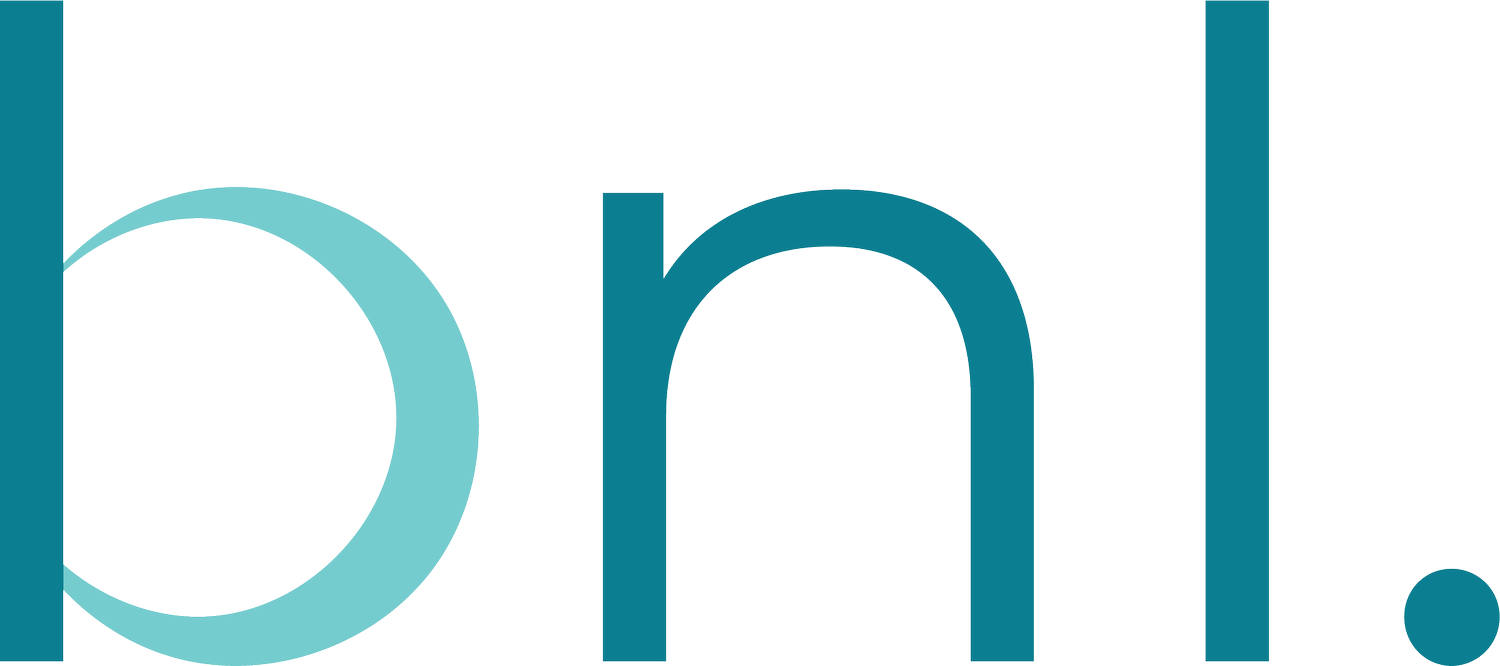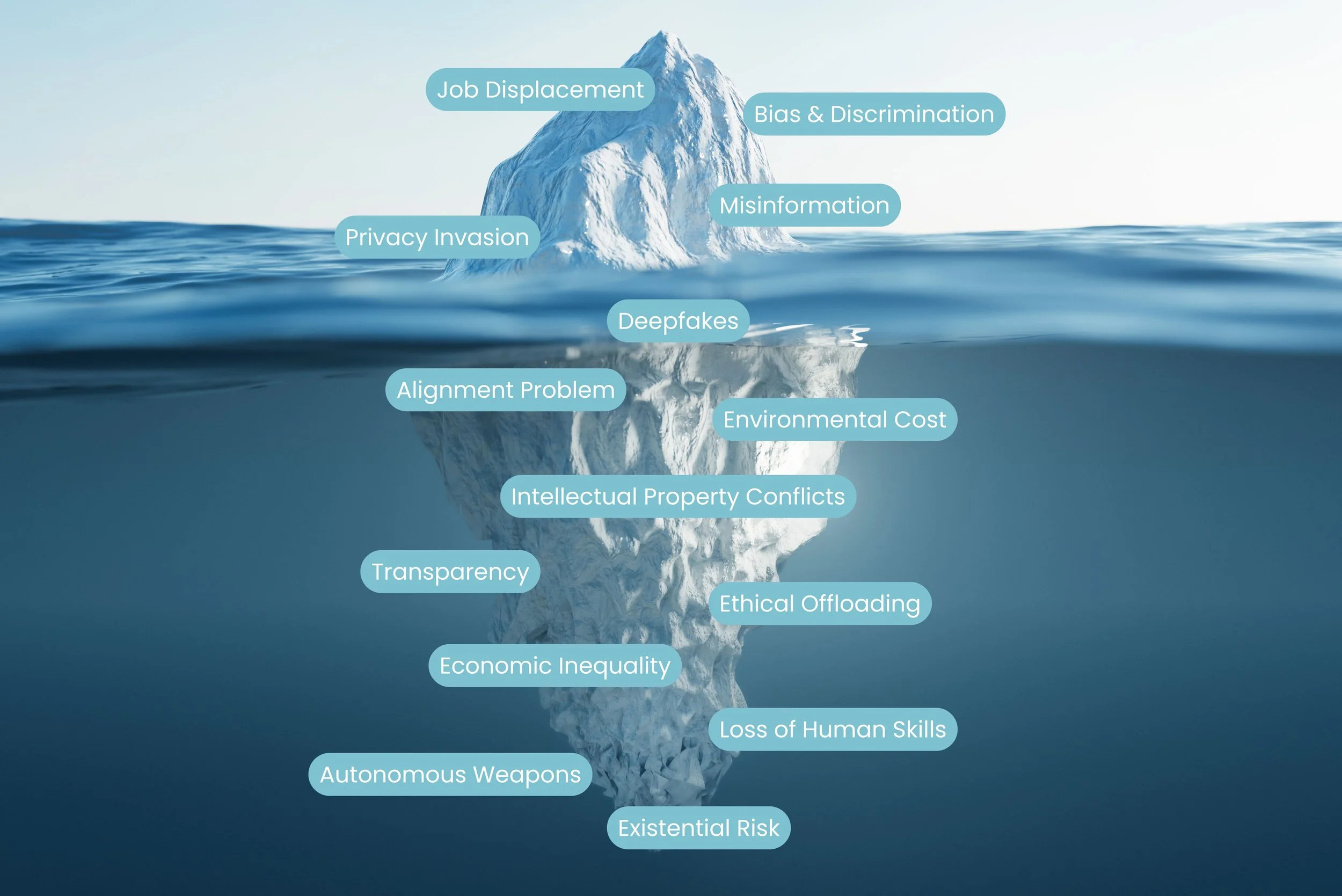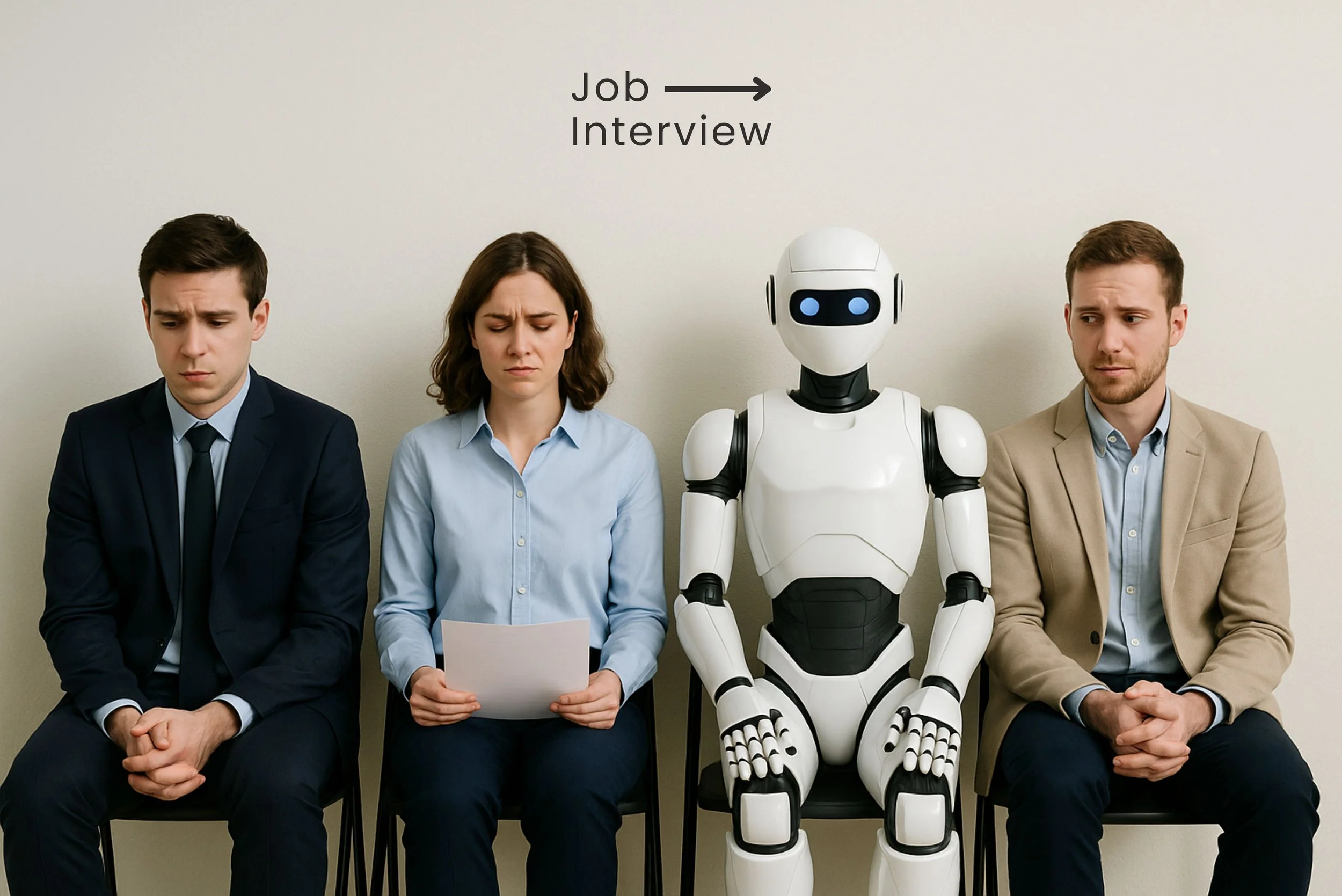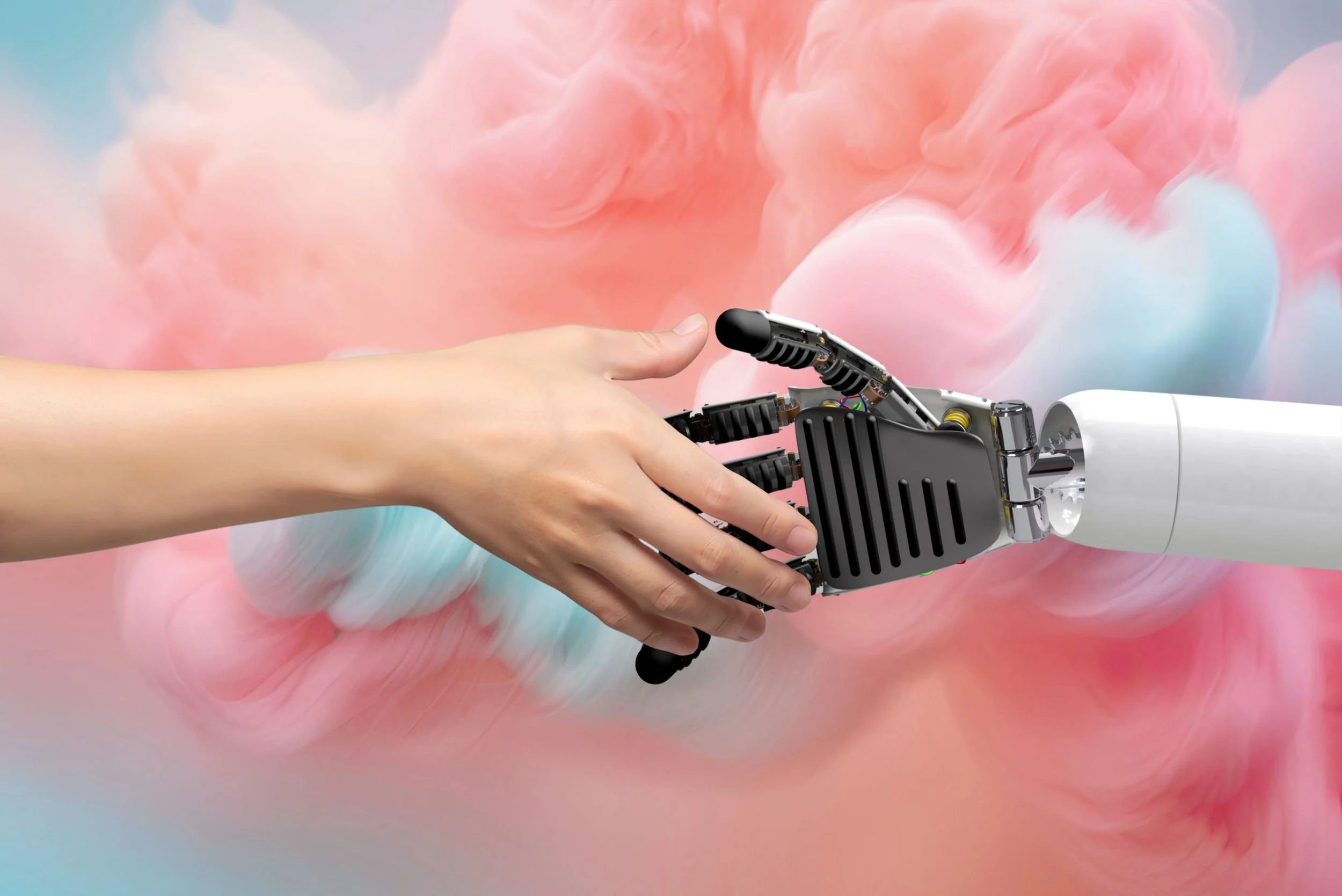One Writer’s Opinion on the “Ethics” of AI
Hey BNL Blog Readers! It’s Lyle Hendricks, your lead copywriter here at BNL.
Recently, I’ve been on a quick holiday back to my hometown of Coquitlam, BC, from my current home in Montreal. I’ve been making the rounds with friends and family, and naturally, the topic of work comes up often. As a successful enough professional writer in the corporate marketing world, there’s one question that seems to be on the mind of everyone I talk to: How is AI impacting my work?
As with everyone else, there’s a real range of opinions and perspectives on AI among the people I talk to. Some balk at the idea that I’m not using it to make my job easier; others congratulate me for sticking to my guns. Some people think we’re a year away from my entire profession evaporating, others figure there will always be a market for that human touch. I’ve debated, joked, mused, and spiraled into more hopeless fits of anxiety than I care to admit over this topic.
But there’s one aspect of it that never seems to get much attention. And it has nothing to do with me, you, or any other user of AI and its many strange offshoots and experiments. Of course, I’m talking about the companies that are creating this technology and the governments that are allowing it free rein over our society.
While we argue about whether an AI influencer has the right to try and influence anything, or if it’s okay to use ChatGPT for X but never for Y, I think we’re overlooking the far more important conversation. Is anyone willing to hold these companies accountable to some sort of ethical, environmental, or social standard? Is there hope for the scores of people who find their careers have become obsolete overnight? Or are we truly in a lawless, tech-fueled wild West scenario when it comes to artificial intelligence?
This is the part of the article where I’d normally tell you we’re answering all these questions and more in the headings below. But in reality, I don’t think I can provide many concrete answers about this emerging tech and its consequences for humanity. Instead, let’s look at the realities of AI as it exists today, try to connect it to other leaps in technology from the past, and try to imagine a future where this tech is something to celebrate, rather than something to fear.
The Trouble with Generative AI
Let’s get one important distinction out of the way. When we talk about AI in this context, we’re specifically speaking about generative AI. This is tech like ChatGPT, Google Gemini, Midjourney, and other similar AI tools. Unlike assistive AI, which is used for things like data entry and analysis, this type of AI generates text, audio, video, or images, and it’s often used for jobs that you would have needed a human for just a couple of years ago.
We probably don’t have to tell you what tech like this means for artists, writers, graphic designers, videographers, and even computer programmers. These industries aren’t gone, but they’re different.
On one hand, you have early adopters touting their AI-powered workflows as an asset, while others brag about their work being 100% human-made. All of these people are finding themselves in competition for an ever-shrinking pool of work as AI improves and more jobs are being automated, leading to a race to the bottom as creative work is more devalued than ever.
In my perfect world, losing your job to AI would be great news. Congrats! Humanity has moved beyond the need for your labour, and now you can kick back, reap the benefits of our technological genius, collect your AI obsolescence pension cheques, and focus on painting in the backyard and mastering the art of Hollandaise sauce in a life of beautiful prosperity.
Sadly, things aren’t shaping up this way. In a cutthroat world driven by capital and productivity, the expectation is that professionals who lose their jobs to AI will pivot, retrain, adapt around new tech, and continue to work and produce until the wheels fall off.
This is a problem. Like, a serious problem. But at the same time, it’s just the tip of the iceberg. So what other issues are coming up as AI becomes more omnipotent and present?
The Corporate Question
Generally, our governments aren’t big on innovation. They leave the cutting-edge tech and world-changing developments (along with almost everything else) to private corporations, letting the ‘free market’ determine those pesky questions like ‘will I have a job in one year?’ and ‘is my degree worth the paper it’s printed on?’
We can argue about the merits and downsides of capitalism until the cows come home. But the fact is that every tech innovation in the modern world—from the telephone, to the lightbulb, to the internet—has been propelled by companies driven by profits, and AI is no exception. There are some heavy hitters racing to come out on top in today’s AI arms race. Predictably, existing tech giants like Google, Meta, Microsoft, Amazon, and Nvidia are leading in some categories, with AI-specific companies coming in hot on their heels, such as 12-digit-valued OpenAI and others like it.
There are trillions of dollars going into funding AI research and development. Obviously, this isn’t because these companies necessarily want to make the world a better place—it’s about getting in on the gold rush of a lifetime. And while there can be positive side effects of corporations channeling money into new tech, it’s worth remembering that none of this is designed to benefit you, me, or anyone else like us. It’s about profits, pure and simple. Numbers we can scarcely comprehend, let alone ever hope to see. And if it benefits us along the way, that’s nothing but a minor bonus to a small but mighty group of inconceivably wealthy executives.
With that said, let’s look at the ways these corporations do affect our daily lives.
How the Growth of AI Is Impacting Regular People
AI is poised to shake up the world like the internet did, if not more so. While today’s experiments with AI might seem unfocused at best, they’re all in the effort of reimagining the ways we use computers, do our work, create our art, and organize our systems. While the cat is certainly out of the bag with this one, it’s worth looking into the real effects that this technology is already having on normal people’s lives before it goes even further.
Job loss
We’ve already looked at the way AI is impacting the job market, but it’s hard to overstate. Current estimates say that 300 million jobs could be lost worldwide due to AI, forcing 14% of all workers to change careers or face unemployment by 2030. And honestly? These predictions might be on the conservative side. While it’s true that AI is also creating jobs, there’s no real way to know how that will balance out in reality (especially now that AI is being used to improve itself). Plus, it doesn’t account for the countless people who have spent five, ten, or twenty years in education, training, and gaining career experience in a field that’s no longer in demand.
Devaluation of creative work
In tandem with the effects of AI on jobs, it’s worth noting the way that it’s affecting creatives in particular. As self-proclaimed philosopher @jeffowski famously stated on Mastodon, “The underlying purpose of AI is to allow wealth to access skill while removing from the skilled the ability to access wealth.” This is true especially for artists and creatives, who are finding themselves increasingly in competition with tepid but highly productive technology capable of creating anything your heart desires in moments. This leads to professional art becoming devalued, since “AI could make something almost as good in 30 seconds for a fraction of the cost.”
Environmental impacts
AI is an extremely energy-intensive technology, and some predictions estimate that worldwide power demand from data centres will more than double by 2030. OpenAI CEO Sam Altman says that ChatGPT users have already spent tens of millions of dollars in energy simply by telling the AI ‘please’ and ‘thank you’ while using it. In the United States, green energy legislation is being rolled back, with the government aiming to help power AI data-centres with coal and gas-burning power plants. If you find that to be a little dissonant and confusing, you’re not alone.
Harmful material
Like any other tool, AI can be used for good or for bad, and at the moment, it’s a little too easy to do the latter. Whether it’s scamming people out of their life savings by impersonating Brad Pitt with AI deepfakes, generating explicit AI images of minors, or even using the tech to interfere in democratic elections, AI has the capability to make almost anything, which has left the door open for criminals, predators, and malicious foreign governments to leverage it for whatever purposes they please. While content moderation is an ongoing process on all public AI platforms, there are huge movements dedicated to bypassing these rules, meaning AI is still very capable of being a threat.
Loss of media trust
As it becomes harder and harder to tell AI-generated content apart from the real thing, more people are becoming skeptical of all media they see. This makes it more difficult to believe what you see, leading to increased alienation and isolation—something we explored when discussing algorithmic echo chambers on social media. While it’s always been good to be skeptical about the news and things you read online, it’s never been more confusing or difficult to get facts you can rely on.
An AI Reality Check and the Path Forward
If you’ve read this far, there’s a chance you’re rolling your eyes at yet another naive, tech-rejecting naysayer who’s about to be swept away by the tides of change. But of course, I’m not here to argue that AI should be outlawed and forgotten about. Regardless of how I feel about this technology, it’s clear: Computers, the internet, and any work that happens digitally are all about to change forever. While there’s no way to go back to the simpler world before the birth of AI as we know it, it’s also vitally important that we stay objective when thinking about this technology and determining the role it will play in our lives.
For one thing, companies and our governments should be held to a higher standard when it comes to AI and its compatibility with our species. We cannot put a fifth of the world out of work without some kind of system to help them get back on their feet. We cannot turn our back on human artistry because a computer can churn out content quickly. We cannot allow our planet to be poisoned by primitive fossil fuels in order to fuel a hyperfuturistic technology.
While I hope for rigorous accountability, legislation with teeth, and some sort of universal basic income for those who lose their jobs to this technology, I’m also not holding my breath. So what’s a realistic path forward? Like it or not, you will have to find a way to incorporate AI into your life and your work—at least in the short-term. History made a fool of the last office worker to stubbornly hold onto their typewriter, and this development will spell far greater changes in our world than the first computers.
Like I promised, I don’t have answers to all these questions and anxieties. But by understanding the realities of AI as it exists today, including the good and the bad, we can, at the very least, step into this brave new world with our eyes wide open.





